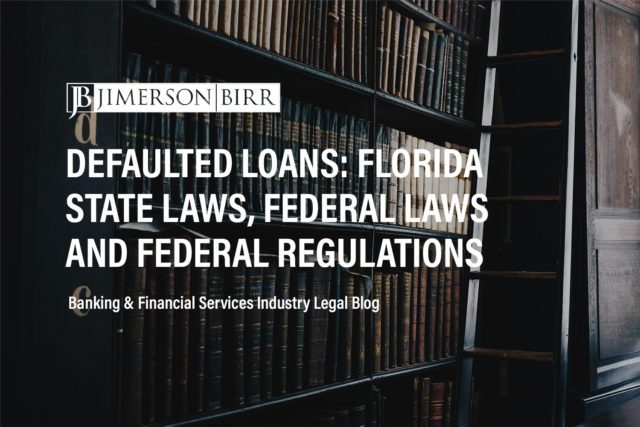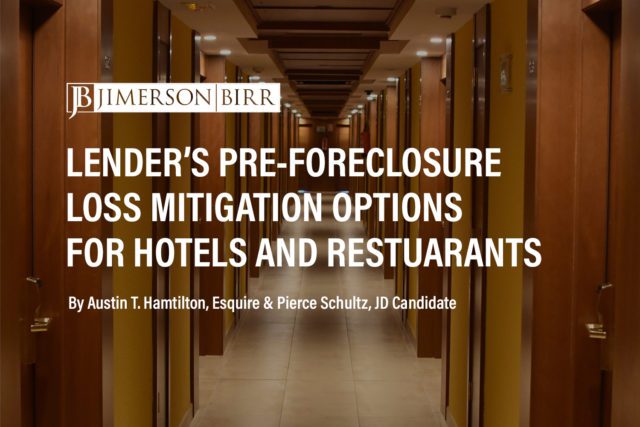What do mortgage foreclosures encompass?
Mortgage foreclosures occur when a borrower defaults on their mortgage loan, prompting the lender to seek legal action to regain possession of the property. In Florida, the foreclosure process is judicial, meaning that the lender must file a lawsuit in court to foreclose on the property. During the foreclosure process, the borrower may have opportunities to contest the foreclosure, negotiate a loan modification, or seek other alternatives to avoid losing their property.
For example, in a Florida real estate dispute involving a mortgage foreclosure, a borrower may argue that the lender did not follow proper procedures or failed to provide the required notices. By raising such defenses, the borrower may be able to delay the foreclosure process, negotiate better terms, or even prevent the foreclosure altogether.
Need help with creating, structuring, or enforcing real estate agreements? Schedule your consultation today with a top real estate litigation attorney.
Which Florida laws, rules, and regulations apply to mortgage foreclosures?
Several Florida laws, rules, and regulations govern the mortgage foreclosure process. Chapter 702 of the Florida Statutes outlines the process and requirements for foreclosure proceedings. The Florida Rules of Civil Procedure also apply to foreclosure actions, as they dictate the procedural requirements for filing and litigating a lawsuit in the state.
Furthermore, the Federal Consumer Financial Protection Bureau (CFPB) has established regulations that protect homeowners facing foreclosure, such as the Real Estate Settlement Procedures Act (RESPA) and the Truth in Lending Act (TILA). These regulations impose requirements on lenders, such as providing notice of default and exploring loss mitigation options with borrowers before initiating foreclosure proceedings. Therefore, familiarity with Florida and federal laws is crucial for navigating the complexities of mortgage foreclosure disputes.
What are common issues associated with mortgage foreclosures that lead to litigation?
The following issues tend to escalate real estate disputes to litigation:
- Standing disputes: A lender must establish that they have the legal standing to initiate foreclosure proceedings. Issues related to standing arise when a lender cannot produce the original promissory note or when the loan transfers multiple times.
- Improper notice: Florida law requires lenders to give borrowers proper notice of default and intent to foreclose. Failure to comply with these notice requirements can lead to litigation and delay foreclosure.
- Robo-signing: This issue occurs when lenders or their agents sign off on foreclosure documents without verifying the accuracy of the information. Borrowers can challenge the validity of the foreclosure based on robo-signing allegations.
- Loan modification issues: Borrowers may claim that the lender did not adequately consider their request for a loan modification, or the lender may have mishandled the application process.
- Violation of federal laws: Borrowers may argue that the lender violated federal laws, such as the Real Estate Settlement Procedures Act (RESPA) or the Truth in Lending Act (TILA), which can serve as a defense to foreclosure.
When a set of facts is appropriate for legal advocacy or intervention, there are many paths a claimant may take. We are value-based attorneys at Jimerson Birr, which means we look at each action with our clients from the point of view of costs and benefits while reducing liability. Then, based on our client’s objectives, we chart a path to seek appropriate remedies.
To determine whether your unique situation may necessitate litigation or another form of specialized advocacy, please contact our office to set up your initial consultation.
What are effective measures to resolve issues and avoid litigation over mortgage foreclosures?
To mitigate the risk of litigation over mortgage foreclosures, consider implementing the following measures:
- Ensure proper documentation: Lenders should maintain thorough and accurate records of loan transactions, including original promissory notes and mortgage documents.
- Comply with notice requirements: Strictly adhere to Florida’s notice requirements when initiating foreclosure proceedings to avoid challenges related to the improper notice.
- Verify the accuracy of foreclosure documents: Review all records for accuracy and completeness before filing them in court. This verification can help to avoid issues related to robo-signing.
- Engage in loss mitigation efforts: Work proactively with borrowers to explore alternatives to foreclosure, such as loan modifications, short sales, or deed-in-lieu transactions. This work not only fosters goodwill but also complies with federal regulations.
- Adhere to federal laws: Ensure compliance with all applicable federal laws, including RESPA and TILA, to prevent borrowers from raising violations as a defense to foreclosure.
Please contact our office to set up your initial consultation to see what forms of legal advocacy or intervention may be available for your unique situation.
Frequently Asked Questions
- What is the Florida foreclosure process?
In Florida, the foreclosure process is judicial, meaning it goes through the court system. The lender files a complaint in court and serves the borrower with a summons and a copy of the complaint. The borrower has a limited time to respond; if they fail to do so, the lender can request a default judgment. If the borrower does respond, the case may proceed to trial. If the lender prevails, the court issues a final judgment of foreclosure, and the property is sold at auction to satisfy the debt.
- Can I stop foreclosure after it has started?
Yes, you can stop a foreclosure in Florida by reinstating your loan, requesting a loan modification, or filing for bankruptcy. Reinstating the loan involves paying all past-due amounts, fees, and costs before the foreclosure sale. A loan modification may allow you to change the terms of your loan, making it more affordable. Finally, filing for bankruptcy can temporarily halt the foreclosure process, giving you time to reorganize your finances.
- How long does the foreclosure process take in Florida?
The foreclosure process in Florida can take anywhere from a few months to over a year, depending on the specifics of the case and the court’s schedule. The process may extend if the borrower files a response, requests a loan modification, or files for bankruptcy.
- What are my rights as a tenant if my landlord’s property is being foreclosed?
Under the Protecting Tenants at Foreclosure Act of 2009, tenants have certain rights when the property they rent is being foreclosed. Generally, tenants must receive at least 90 days’ notice before eviction, and they can stay in the property until the end of their lease term, with some exceptions.
- Can I get my home back after a foreclosure sale?
In Florida, you generally cannot get your home back after a foreclosure sale. However, if you believe the foreclosure was wrongful, you can file a lawsuit to challenge the foreclosure and potentially regain property ownership. It’s essential to consult with an experienced Florida real estate attorney to evaluate your options and protect your rights.
Have more questions about real estate transactions and disputes?
Crucially, this overview of mortgage foreclosures does not begin to cover all the laws implicated by this issue or the factors that may compel the application of such laws. Every case is unique, and the laws can produce different outcomes depending on the individual circumstances.
Jimerson Birr attorneys guide our clients to help make informed decisions while ensuring their rights are respected and protected. Our lawyers are highly trained and experienced in the nuances of the law, so they can accurately interpret statutes and case law and holistically prepare individuals or companies for their legal endeavors. Through this intense personal investment and advocacy, our lawyers will help resolve the issue’s complicated legal problems efficiently and effectively.
Having a Jimerson Birr attorney on your side means securing a team of seasoned, multi-dimensional, cross-functional legal professionals. Whether it is a transaction, an operational issue, a regulatory challenge, or a contested legal predicament that may require court intervention, we remain tireless advocates at every step. Being a value-added law firm means putting the client at the forefront of everything we do. We use our experience to help our clients navigate even the most complex problems and come out the other side triumphant.
If you want to understand your case, the merits of your claim or defense, potential monetary awards, or the amount of exposure you face, you should speak with a qualified Jimerson Birr lawyer. Our experienced team of attorneys is here to help. Call Jimerson Birr at (904) 389-0050 or use the contact form to schedule a consultation.

We live by our 7 Superior Service Commitments
- Conferring Client-Defined Value
- Efficient and Cost-Effective
- Accessibility
- Delivering an Experience While Delivering Results
- Meaningful and Enduring Partnership
- Exceptional Communication Based Upon Listening
- Accountability to Goals











